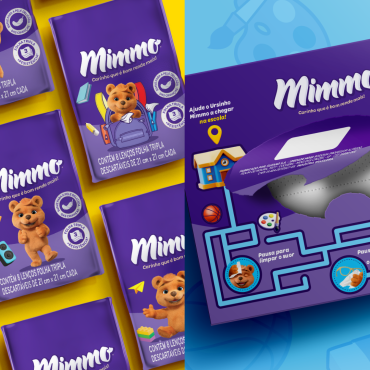Veganism: How has this lifestyle been impacting the consumer scenario?

Inspire-se
Until recently, talking about veganism necessarily implied explaining what it meant. Today the scenario is quite different. To get an idea of how this movement is gaining momentum, in 2018, the word “vegan” was considered one of the most notable words of the year by the Collins Dictionary.
But it was not just the term that gained the most notoriety. Today, in the midst of a whole discussion of ethical and conscientious consumption, becoming vegan makes sense for more and more people, and many brands have understood that they need to position themselves to connect with this mindset.
Millennials for the Environment
Reduction of greenhouse gases, recovery of more than 45% of the world’s territory (which is now dedicated to livestock), reduction of the amount of water used in production processes. These are some of the consequences that stopping the consumption of animal products could bring to the world. Looking at this, it is easy to understand why veganism is gaining more followers.
Recently, a study indicated that millennials are increasingly paying attention to the environmental impact of their eating habits. According to the survey, more than 40% of 25-34 year olds are following some special environmental diet, while 37% say they do so as a matter of ethics.
Today, about 7 million Brazilians are vegans – the equivalent of 3.3% of the country’s population – but the trend is that this lifestyle will continue to gain more people in the coming years.
The Importance of Communicating With Vegan Supporters

Among the sectors that can be most impacted by the expansion of veganism are cosmetic and food. And it’s not just a matter of offering products without animal ingredients or removing those components from formulas. It’s also about communicating effectively with both vegan and general audiences. Because everyday more people are giving preference to animal friendly items.
In an IBOPE Inteligência survey, for example, 55% of respondents said they would buy more vegan products if this information was clearly indicated on labels and packaging. Therefore, it is essential that companies incorporate this new mindset when thinking about the communication of their products and services. After all, we are talking about a more demanding generation that demands more conscious attitudes from the brands they consume.
More vegan products on the shelves
A study by Folha found that the market for vegan products has been growing at around 40% per year in Brazil. With this increase, many organizations have realized the need to rethink their catalogs – sometimes even quite creatively. Mantiqueira is an example of this.
The company, which is the largest egg producer in Latin America, recently launched another item in its portfolio: the vegan egg. N.ovo. It is made from pea starch and is sold in powder form. But instead of packing the food in a sachet, the brand used a cardboard box (just like traditional eggs), clearly communicating the information that the product is a vegetable alternative.

In fact, Pande had the opportunity to work with Mantiqueira on a super cool project to create a new visual identity. Check out the case in more details.
With more people concerned about the consequences of their habits, veganism has become an increasingly relevant lifestyle. The same conclusion holds for brands, which now must adapt their products, packaging and ways of communicating taking into account how this mindset has been impacting the consumer scenario.




